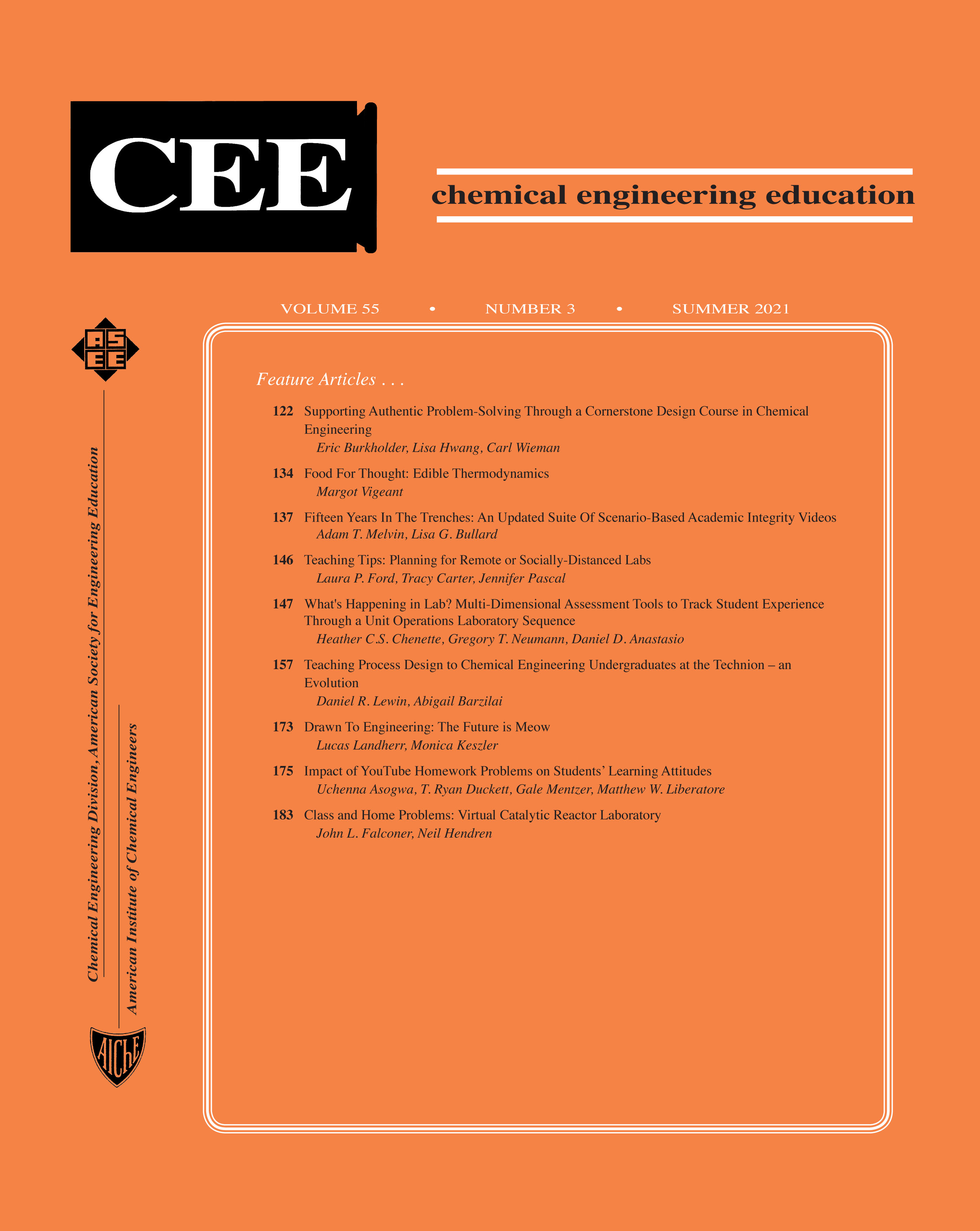Supporting Authentic Problem-Solving Through a Cornerstone Design Course in Chemical Engineering
DOI:
https://doi.org/10.18260/2-1-370.660-126222Abstract
We have developed an assessment of authentic problem-solving in chemical engineering, which we used to measure students’ problem-solving at the beginning and end of a cornerstone design course. We measured how much problem-solving students learned, and how these students compared with data collected from seniors at the beginning of the capstone design course. Our results indicate the importance of cornerstone design courses, and highlight the need to better integrate problem-solving into the undergraduate curriculum.


